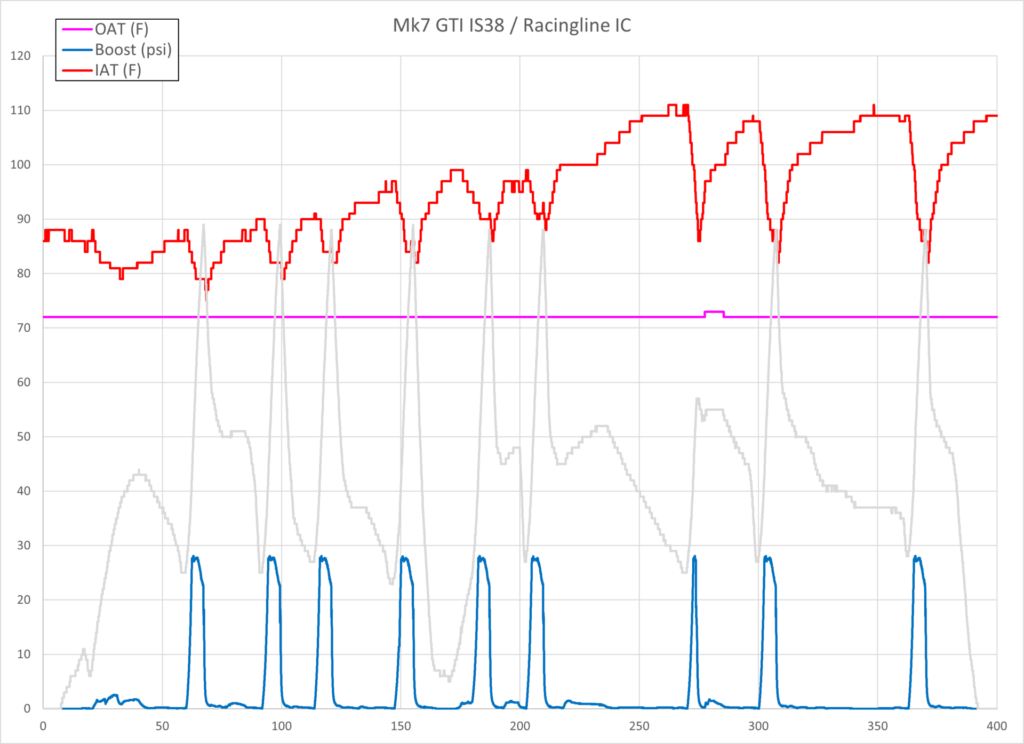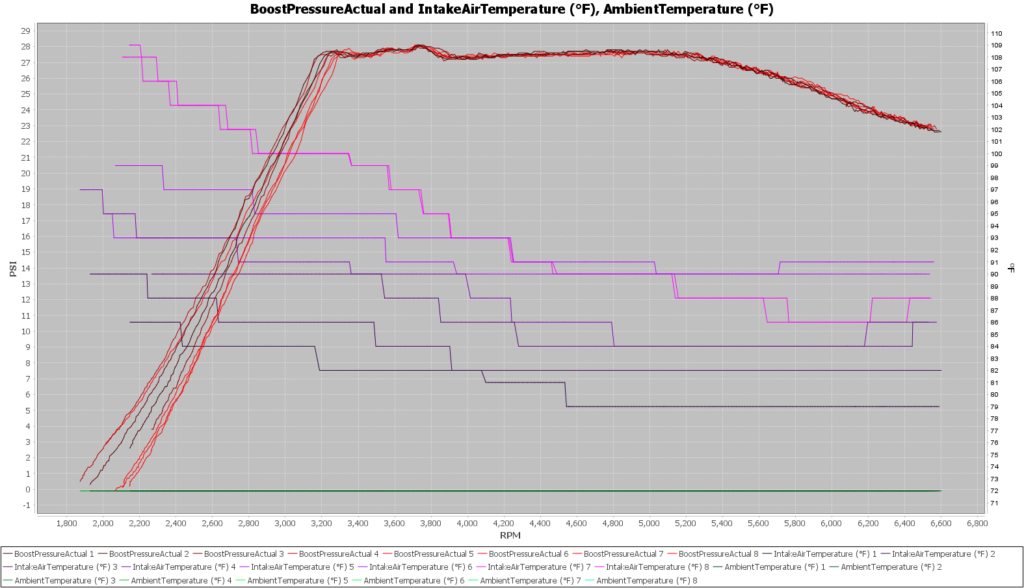Background:
Racingline supplies a stock location intercooler for the Mk7 GTI. After conducting a bench flow test with the Racingline intercooler the product was installed in my GTI to record some intake air temperature data on the street.

Test Procedure:
The GTI is equipped with an IS38 turbocharger and the intake air temperature data is recorded during a series of single-gear pulls in third gear. The pull starts around 2000 RPM and concludes around 6300 RPM.

The overview of the data collection session wherein the data of interest was logged is shown in the chart below:

The boost profile during the third gear pulls is shown along with the Intake Air Temperature and the Ambient Air Temperature:

Test Results:
The intake air temperature above the ambient air temperature at 6,000 RPM is the value being used to generate the trend chart. This shows that during the first series of pulls the intake air temperature delta increases slightly with successive pulls.
After the first series of six (6) pulls a longer time out of boost follows, beginning around 150 seconds, and the temperature value drops slightly at this point.

Estimates for the maximum peak wheel horsepower during each pull are calculated using the Virtual Dyno software program.

Data points for the Racingline intercooler are shown compared with other stock location intercoolers.

The median temperature delta is calculated (13 degF) and used along with the flow bench measured air flow to place the Racingline IC amongst other intercoolers that have been tested in a similar manner.

Conclusions:
The Racingline intercooler was installed in my Mk7 GTI and was operated on the street to record intake air temperature during a series of third-gear pulls.
The median IAT over the outside air temperature at 6,000 RPM was 13 degrees Fahrenheit.
The Racingline intercooler compares well with other stock location intercoolers that have been tested following the procedure described above.
